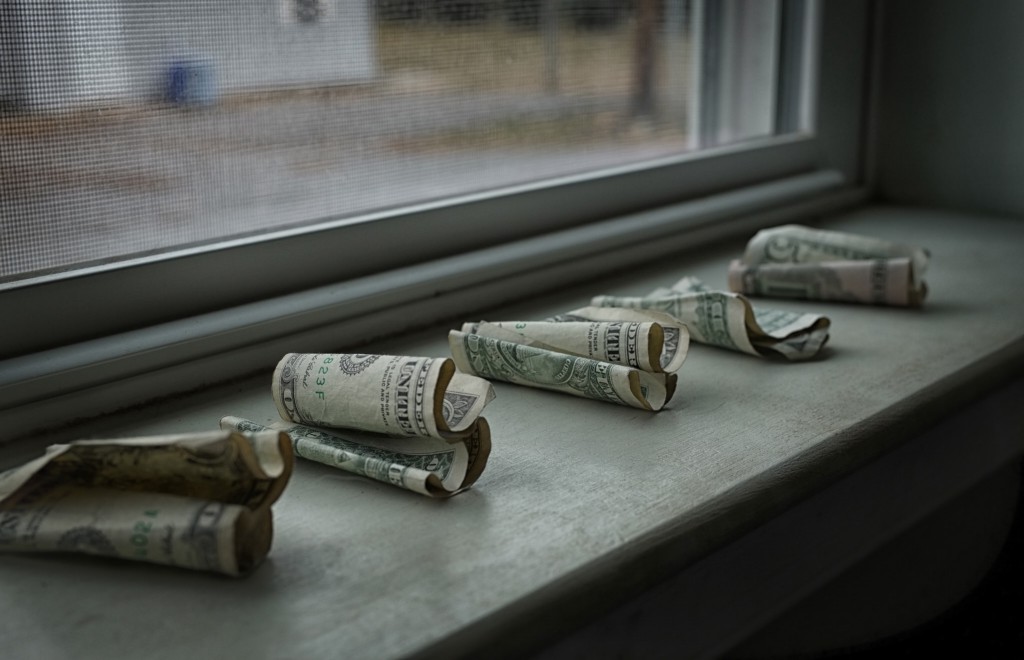A Painful Question of the Day
Is handing over cash really more painful than swiping a card?

When I was doing my grocery shopping last week, I found a $10 bill jammed into the bottom of my purse’s “cash and receipts” pocket.
What is this doing here? I thought. Then I remembered: Oh, I took some cash out for my trip to Mini-Con, and I guess I didn’t spend it all.
The next day, I was at the Phinneywood Art Walk. This is one of these deals where a bunch of local businesses host local artists’ work in order to both support the arts and encourage people to walk into the businesses. You can buy the art that’s on display, you can also buy the wares the business has on display, and really everybody wins.
That meant when I went into Chocolati Café in Greenwood, I pulled out my $10 bill and spent $1.30 on a marzipan truffle. (I couldn’t afford the art, but I could definitely afford that.)
I wouldn’t have bought anything if I had to do it on the debit card. But this $10 was already spent, in a way. It was out of my checking account. It no longer “counted” against my official balance. I couldn’t use it for rent or bills or anything else of significance—and before you ask, I couldn’t even have re-deposited it because my online bank doesn’t have cash deposit options—but I could use the $10 to buy a chocolate.
I also gave a dollar to a homeless person who was asking for change at the bus stop. Both of these transactions felt delightfully painless and generous and free; I didn’t have to think about how much money was in my checking account, I didn’t have to consider how many expenses I still had before the end of the month, all I had to do was pull cash out of my pocket.
But it made me think of what Helaine Olen said during our recent interview:
Talking to Helaine Olen About ‘The United States of Debt’
We find parting with cash an experience akin to pain. We do not get the same feelings from swiping a credit card — or, for that matter, using virtual credit cards!
Olen didn’t mention debit cards, so I did a little bit of research to see how debit cards fall into the “cash=pain, credit=no pain” studies. It looks like the original study, “Do Payment Mechanisms Change the Way Consumers Perceive Products?” by Promothesh Chatterjee and Randall L. Rose, deals specifically with credit cards vs. cash, with only one mention of debit cards near the end:
This effect is likely to be magnified by the rapid movement away from cash to credit/ debit card purchasing.
This idea that “credit = no pain” comes up a lot in personal finance articles—I referenced it in a 2014 Billfold story about Amazon Firefly shopping—and I’ve always disagreed with it.
Here’s what I wrote in 2014:
This may be a sentiment that’s more common to Billfold readers than other groups, but I feel more pain when I pay with a credit card. I feel pain because I know this is something I can’t actually afford, and using the credit card is my only option. (I also feel guilt and shame because my life is in a place where I can’t afford something that I need.)
That sentiment still stands.
I also feel pain and anxiety when I pay with debit, because I have to watch that balance drop and hope I get another paycheck before it drops too far.
But parting with actual cash? NBD. That cash is already gone, as it were. It isn’t real money; it’s a paper stand-in for money I’ve already taken out of my bank account. (The pain happened at the moment of withdrawal.)
So, the question of the day: Do you also feel less anxious about paying with cash than you do about paying with debit or credit? Is paper cash money that’s “already gone,” so might as well blow it on chocolates and charity? Or do you track and count your cash better than I do, and spend it only when you absolutely have to?
Support The Billfold
The Billfold continues to exist thanks to support from our readers. Help us continue to do our work by making a monthly pledge on Patreon or a one-time-only contribution through PayPal.
Comments